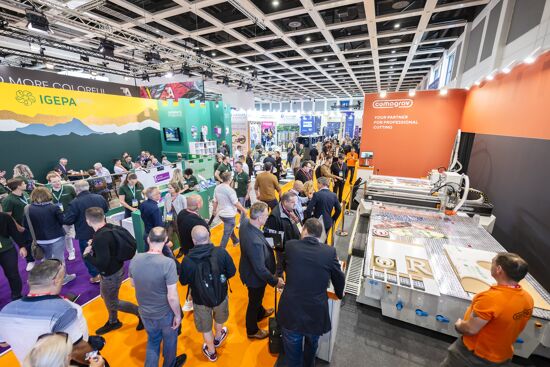Why sustainability continues to grow within European business
With energy sustainability a top-three priority for the European Union’s Europe 2020 strategy, a series of clear-cut targets have been set out.
Reducing greenhouse gas emissions, increasing the share of renewables and improving energy efficiency – all by 20%. Translating these ambitious goals into tangible realities requires concerted efforts from all sectors of society, including the business world.
Companies can contribute to a more sustainable Europe in a number of ways. Developing environmentally responsible products and services, reducing the carbon footprint of daily operations and cutting resource consumption can all have a positive impact.
Businesses can also foster environmental awareness among their employees and partners, encouraging them to incorporate sustainability into their daily work.
Digital transformation
Digital transformation is another measure that can help to mitigate negative environmental impacts, improve productivity and cuts costs. Even a simple change, such as switching from paper to electronic invoicing (e-invoicing) can bring significant savings.
Research commissioned by Ricoh revealed that companies pay 2.6 times less for receiving an electronic invoice than for its paper equivalent. In the long-term, the switchover from paper invoicing to e-invoicing could drive cost savings of €243 billion for businesses across Europe.
Companies which have already launched a digital revolution in the office will be better prepared for a future shaped by “intelligent workers” (iWorkers).This new breed of skilled employees thrive in a digitally connected workspace where they have 24/7 access to all the necessary information to meet the needs of the business and its clients.
While another Ricoh commissioned study found that only 4% of business leaders considered the majority of their workforce to align with the iWorker definition, they expect this number to rise to 37% by 2018.
The potential of the sustainable economy
The European Commission is encouraging companies to exploit the great economic potential of a sustainable economy. The global market for environmental goods and services is already worth around €1 trillion per year and this is expected to double by 2020.
Forward-thinking business leaders are now preparing their organisations for the upcoming era of green growth. They have realised that sustainability is not a burden but a chance to improve a company’s overall performance, build consumers’ trust and drive profits.
Beginning a green transformation may seem daunting. Audits conducted by a specialised partner can create a tailor-made sustainability roadmap for each organisation. Experts can highlight inefficiencies and propose adequate solutions for identified challenges.
Setting up such a plan is the first step in exploring eco-improvements across the whole business model. Progress monitoring and periodical overhauls of agreed tactics are necessary to make sure a company stays on target with its green commitments.
As we have found with many organisations – multinationals and SMEs alike – a systematic approach can bring significant results. This includes a considerable reduction in paper and electricity consumption, along with renewed motivation for employees to contribute to their company’s green goals.
Journey towards sustainable business
A company’s journey towards a sustainable strategy often follows three phases. It starts with passive compliance and environmental regulation, where all the legal boxes are checked but there is no ambition to drive positive change.
Next, the company’s leaders define their own environmental goals and proactively implement green practices, setting the bar above basic regulatory requirements. It is usually at the end of this phase that sustainability efforts start to pay off, boosting profits and performance.
The ultimate destination of this journey is what Ricoh defines as “the responsible stage” – a rewarding turning point where ecological solutions and business strategy complement each other to drive economic benefits for the company, consumers, the environment and the wider economy.
All businesses have the potential to move from the passive to the responsible stage. This transition is imperative in turning the Europe 2020 sustainability targets from a grand vision into reality.Now is the time for those lagging behind on green goals to join the sustainability revolution.
Inspiring examples of environmental champions and encouragement from policymakers can position green growth as a compelling target for businesses. Going green is no longer a jump into the unknown, but a smart step towards a sustainable and profitable future.
Source: Ricoh
Topics
Interested in joining our community?
Enquire today about joining your local FESPA Association or FESPA Direct
Recent news

Industry Experts Explore the Evolution of Smart Manufacturing in the Textile Industry
A FESPA SmartHUB roundtable at Personalisation Experience 2025 discussed smart manufacturing's transformative impact on the textile industry. Experts highlighted the shift to on-demand customisation, driven by digital printing, data analytics, and automation. Key takeaways included enhanced machine control, significant waste reduction through intelligent software and colour management, and improved sustainability via energy efficiency and near-shoring, ensuring agility and environmental responsibility in textile production.

FESPA 2025 gathers leading visionaries from across the speciality print industry in Berlin
FESPA Global Print Expo 2025, European Sign Expo and Personalisation Experience (6 – 9 May 2025, Messe Berlin, Germany) welcomed Visionaries from across the speciality print industry to shape the future of print, develop forward-thinking business strategies, and explore innovative ways to translate emerging industry trends into tangible growth opportunities.

Exploring Cutting-Edge Textile Printing Innovation with Adobe Print Engine 7
Adobe PDF Print Engine 7, launched at FESPA Global Print 2025, significantly advances textile printing. Debbie McKeegan shares how it automates non-white substrate management and RGB colour handling, expands colour gamuts with in-RIP multicolour transparency blending, and streamlines workflows for efficiency and sustainability. This update boosts customisation, reduces waste, and positions businesses at the forefront of digital print innovation.

FESPA Global Print Expo 2025 - Overall Highlights
FESPA Global Print Expo, Europe's leading print and signage exhibition returned to Messe Berlin from 6 - 9 May 2025.